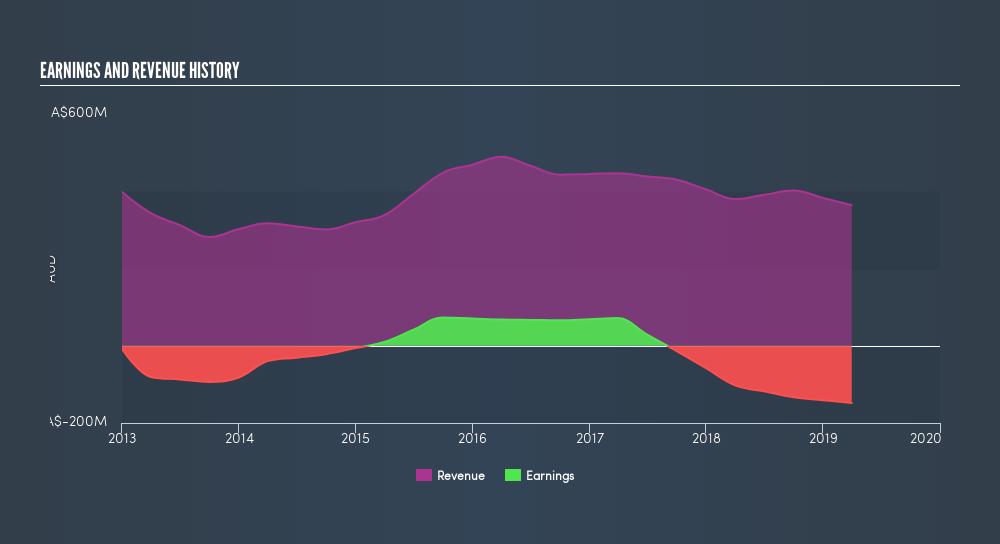Those Who Purchased Australian Agricultural (ASX:AAC) Shares Three Years Ago Have A 44% Loss To Show For It

Want to participate in a short research study? Help shape the future of investing tools and you could win a $250 gift card!
Many investors define successful investing as beating the market average over the long term. But in any portfolio, there are likely to be some stocks that fall short of that benchmark. Unfortunately, that's been the case for longer term Australian Agricultural Company Limited (ASX:AAC) shareholders, since the share price is down 44% in the last three years, falling well short of the market return of around 46%. But it's up 6.4% in the last week.
Check out our latest analysis for Australian Agricultural
Given that Australian Agricultural didn't make a profit in the last twelve months, we'll focus on revenue growth to form a quick view of its business development. Shareholders of unprofitable companies usually expect strong revenue growth. Some companies are willing to postpone profitability to grow revenue faster, but in that case one does expect good top-line growth.
In the last three years Australian Agricultural saw its revenue shrink by 8.7% per year. That's not what investors generally want to see. The annual decline of 18% per year in that period has clearly disappointed holders. That makes sense given the lack of either profits or revenue growth. Of course, sentiment could become too negative, and the company may actually be making progress to profitability.

We like that insiders have been buying shares in the last twelve months. Having said that, most people consider earnings and revenue growth trends to be a more meaningful guide to the business. If you are thinking of buying or selling Australian Agricultural stock, you should check out this free report showing analyst profit forecasts.
A Different Perspective
Investors in Australian Agricultural had a tough year, with a total loss of 16%, against a market gain of about 12%. However, keep in mind that even the best stocks will sometimes underperform the market over a twelve month period. Unfortunately, last year's performance may indicate unresolved challenges, given that it was worse than the annualised loss of 2.6% over the last half decade. Generally speaking long term share price weakness can be a bad sign, though contrarian investors might want to research the stock in hope of a turnaround. If you want to research this stock further, the data on insider buying is an obvious place to start. You can click here to see who has been buying shares - and the price they paid.
If you like to buy stocks alongside management, then you might just love this free list of companies. (Hint: insiders have been buying them).
Please note, the market returns quoted in this article reflect the market weighted average returns of stocks that currently trade on AU exchanges.
We aim to bring you long-term focused research analysis driven by fundamental data. Note that our analysis may not factor in the latest price-sensitive company announcements or qualitative material.
If you spot an error that warrants correction, please contact the editor at editorial-team@simplywallst.com. This article by Simply Wall St is general in nature. It does not constitute a recommendation to buy or sell any stock, and does not take account of your objectives, or your financial situation. Simply Wall St has no position in the stocks mentioned. Thank you for reading.
About ASX:AAC
Australian Agricultural
Engages in the production of cattle and beef in Australia.
Moderate growth potential with mediocre balance sheet.
Similar Companies
Market Insights
Community Narratives




